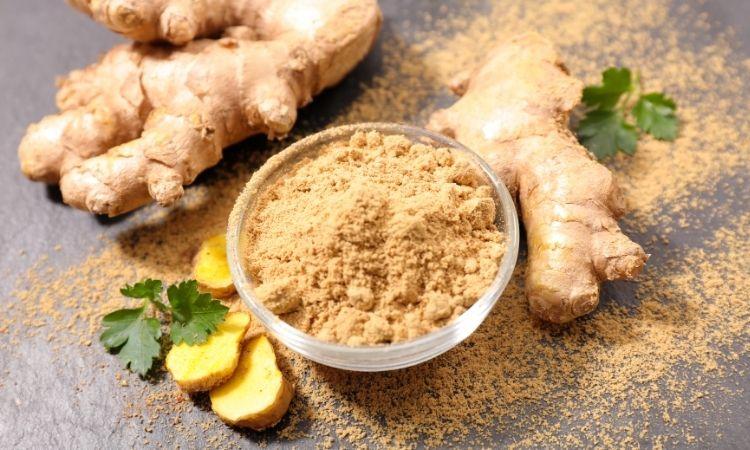Notifications

6 minutes, 35 seconds
-63 Views 0 Comments 0 Likes 0 Reviews

In a world that constantly seeks the next superfood, ginger stands tall—not just for its flavor, but for its centuries-old legacy as nature’s golden root. From ancient Eastern medicine to modern culinary wonders, ginger has left an indelible mark on cultures, kitchens, and clinics alike. Its fiery essence, distinct aroma, and unparalleled health benefits make it more than just a spice—ginger is a healing heritage.
According to Expert Market Research, the growing popularity of ginger in wellness, cosmetics, and functional foods is no coincidence. Their in-depth studies show that ginger's bioactive compounds are being increasingly recognized for their potential in preventive healthcare. Expert Market Research also highlights how innovation in extraction methods, such as CO₂ extraction and cold-pressing, is allowing industries to harness ginger’s potency in its purest form.
These insights confirm that ginger is not just an age-old remedy—it is evolving into a modern solution for immunity, inflammation, and digestive health. This transformation from traditional spice to functional ingredient signifies a shift in global wellness priorities, making ginger a root of both heritage and future-forward health.
Ginger, known scientifically as Zingiber officinale, is a flowering plant native to Southeast Asia. The part we most commonly use—the root or rhizome—is a knotty, gnarled underground stem that hides a powerhouse of bioactive compounds. For millennia, this humble root has been used to soothe ailments, spice up recipes, and awaken the senses.
When you slice open a piece of ginger, you're met with a sharp, spicy fragrance—a signal of the intense therapeutic potential locked inside. Its signature warmth comes from gingerol, a compound that exhibits potent antioxidant and anti-inflammatory properties. These qualities form the basis of ginger’s long-standing use in holistic medicine.
In ancient Ayurvedic and Chinese medicine, ginger was revered as a “universal medicine.” It was used to treat a variety of conditions, from digestive issues and colds to joint pain and menstrual discomfort. Across cultures, ginger tea was considered a daily tonic to cleanse the system and energize the body.
Its use wasn’t limited to medicine—ginger found a comfortable home in spiritual practices and rituals as well. In India and other parts of Asia, offerings often included ginger, believed to purify the soul and bring balance to the body. Even today, this deeply rooted reverence shapes how people approach ginger—not as a commodity, but as a wellness companion.
India, with its vast and diverse agro-climatic zones, offers the perfect environment for cultivating high-quality ginger. In states like Kerala, Karnataka, and Assam, ginger farming is an age-old tradition passed down through generations. Here, ginger is more than just a crop—it’s a way of life.
In Indian kitchens, ginger is an indispensable ingredient, used fresh, dried, or ground into paste. From morning chai infused with ginger’s bold notes to spicy curries layered with its aromatic heat, ginger enhances flavor while aiding digestion. Ayurveda, India’s ancient medicinal system, still hails ginger as a “tridoshic herb,” meaning it balances all three bodily energies—vata, pitta, and kapha.
Beyond its medicinal charm, ginger dazzles with its culinary versatility. It can brighten up a stir-fry, lend complexity to marinades, and infuse warmth into soups and desserts. In baking, ginger’s spicy sweetness turns ordinary cookies and cakes into festive treats. Meanwhile, its ability to cut through rich flavors makes it a natural partner for meats and seafood.
Fresh, pickled, powdered, candied, or juiced—each form of ginger offers a distinct sensory experience. It’s a root that refuses to be boxed in, constantly reinventing itself to meet new palates and preferences.
What makes ginger a modern marvel is its wide-ranging health benefits. Whether it’s reducing muscle soreness after a workout or calming an upset stomach, ginger continues to prove itself as a remedy that bridges ancient wisdom and contemporary science.
Daily consumption of ginger, even in small amounts, has been linked to improved circulation, enhanced immunity, and reduced oxidative stress. It also plays a crucial role in regulating blood sugar levels, making it a go-to for people seeking natural ways to support metabolic health.
The comforting warmth of ginger tea, the refreshing kick in a smoothie, or the zing in a homemade salad dressing—these are small yet meaningful ways to let this powerful root work its magic in our lives.

